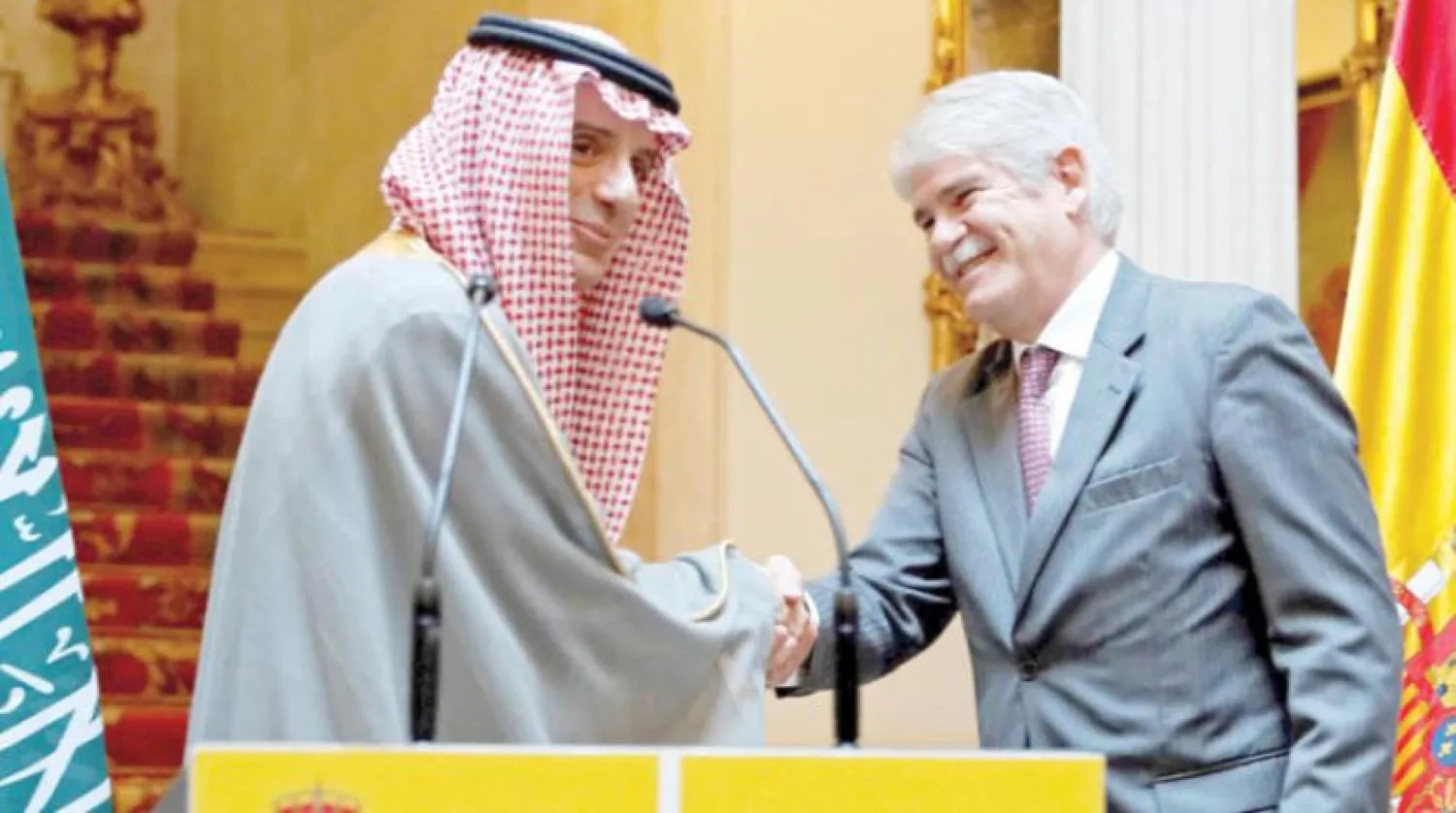Saudi Minister of Foreign Affairs Adel al-Jubeir said that “Hezbollah” is holding Lebanon hostage and these militias can’t be allowed to operate outside the scope of law, stressing the kingdom’s support to outgoing prime minister Saad Hariri.
In a joint news conference with his Spanish counterpart Alfonso Dastis on Friday, Jubeir added that “Lebanon won’t enjoy peace until the terrorist Hezbollah is disarmed,” accusing the party of hijacking the state and hindering the work of the Lebanese government.
Saudi FM noted that Hezbollah is involved in laundering money smuggling drugs.
Jubeir commended Madrid initiatives related to the Middle East crises, asserting that “both countries are keen to confront extremism and terrorism,” according to Saudi Foreign Ministry twitter account.
In an interview earlier with Reuters, the Saudi foreign minister affirmed that the kingdom’s actions in the Middle East came as a response to what he called the “aggression” of Iran, hinting on a future action against Hezbollah.
“Anyway you look at it, they (the Iranians) are the ones who are acting in an aggressive manner. We are reacting to that aggression and saying, enough is enough. We’re not going to let you do this anymore”, Jubeir stated to Reuters.
He said that the kingdom was consulting its allies about what leverage to use against Lebanese militant group Hezbollah – an Iranian ally – to end its dominance. “We will make the decision when the time comes,” he said.
Again, Jubeir denied allegations that Hariri was being held against his will, “he is a free man who can do what he wants,” he said.
Asked whether Saudi Arabia wants Hariri to reconsider his resignation, he assured that this is his decision and that curbing Hezbollah is the current priority.









